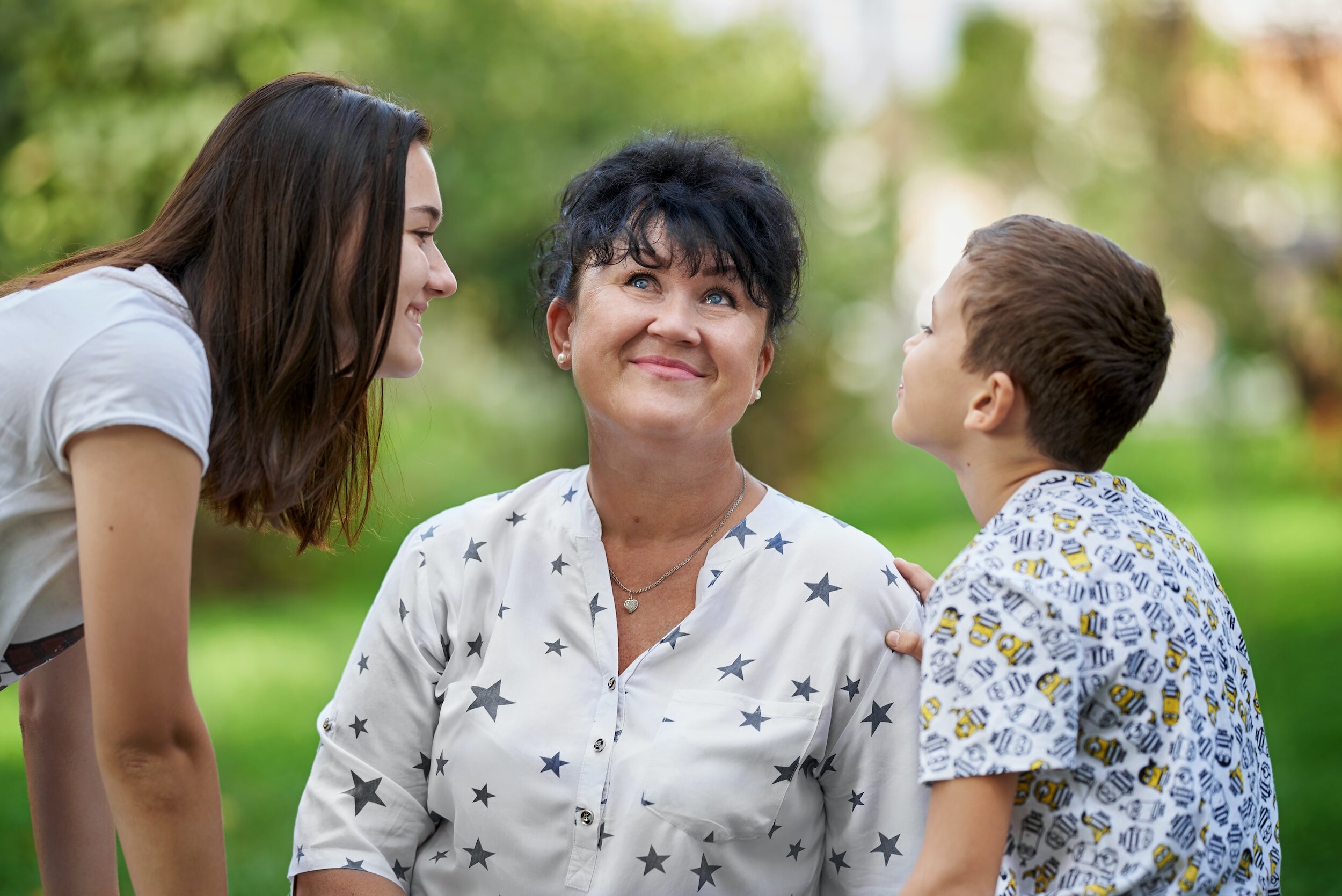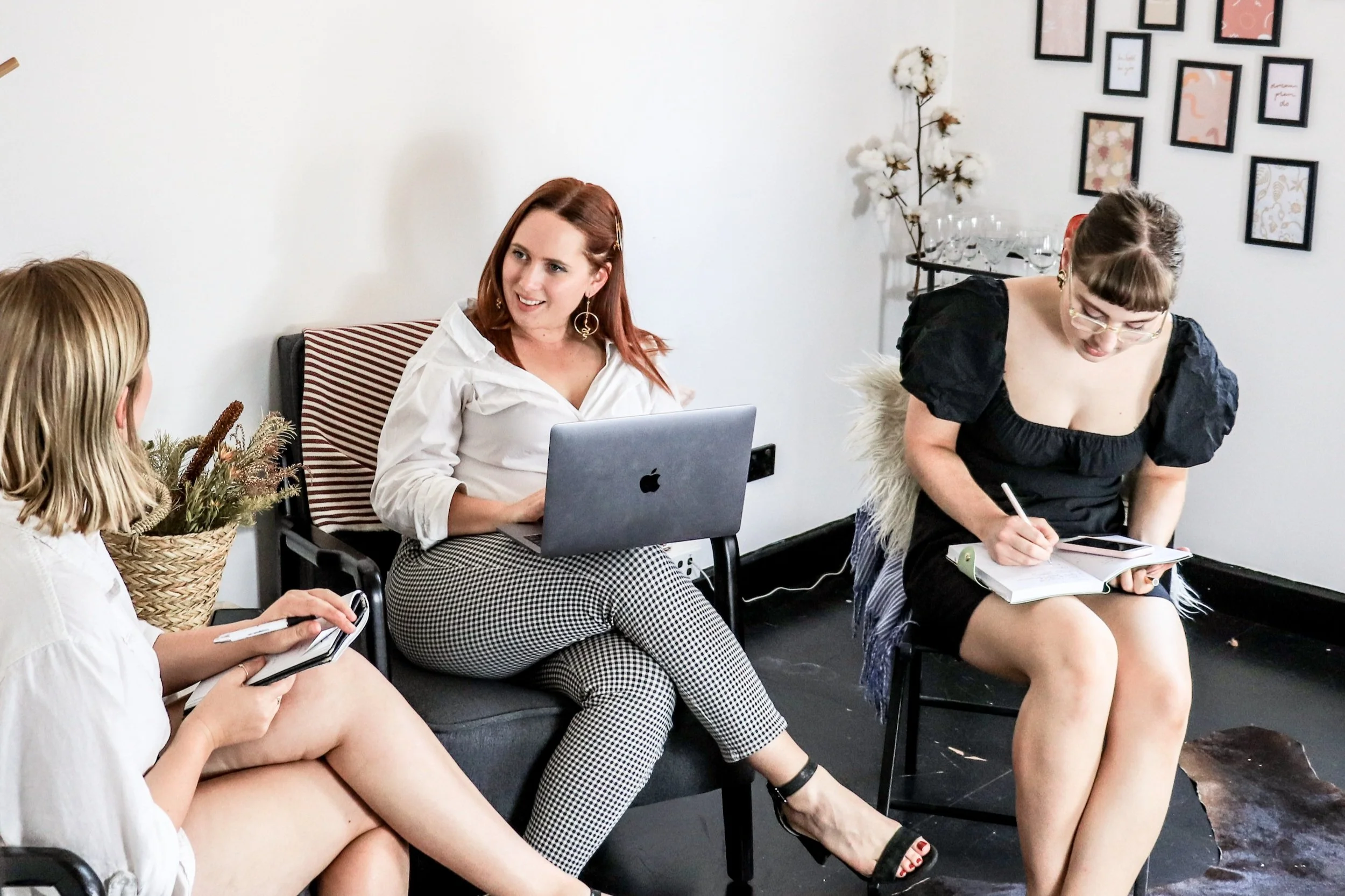“Do you have kids?”
Back in the day, I kind of dreaded this question when it came up in therapy sessions. I’ve been a mom since 2021 and a counselor since 2016, which means I spent the first 5 years of my career as children’s therapist with no children of my own.
I always answered honestly, but I wondered about how my childlessness might change a client’s perspective of me. Did they think I lacked experience? Did they worry I wouldn’t be able to understand their struggles? Would they feel unfairly judged if I offered feedback on parenting strategies to try, given that I wasn’t a parent myself? Usually, families who asked this question opted to continue therapy even after hearing the answer. Sometimes it even led to fruitful discussions about subjects like infertility, the way parenthood changes you, and the high standards parents get held to by society at large.
So, do therapists need to be parents in order to provide effective therapy to kids and families? This question has been on my mind for ages, but I waited to respond until I was fully in the trenches of parenting so that I didn’t have too much bias one way or the other. We’ll take a look at factors to consider when choosing a children’s therapist, and why it may (or may not) be helpful to see someone who has kids of their own.
The Case for Therapists Who Are Parents
It can definitely be helpful to meet with a therapist who shares your lived experience. It’s common for clients to seek out therapists who share their racial or ethnic backgrounds, and queer clients may feel more comfortable meeting with queer-identified therapists. And for good reason! A therapist who shares your identity will better understand your values, your community, and the specific challenges you face.
Being a parent is a huge part of my identity, and I can see why it would be valuable to speak to a therapist who has also been through this crazy, intense life experience. It’s easy to imagine that a fellow parent will really and truly get what you are going through, and have valuable insights to share. At the very least, you know they aren’t going to judge you for feeding your child a partially defrosted Uncrustable and goldfish crackers for breakfast.
Shared experience is especially valuable when you’re looking for help with a unique parenting situation, like adoption, disability, blended families, or raising a child who is from a different race or culture than your own. Just being in a room with someone who’s in the same boat as you can be a comfort.
While I don’t think becoming a parent magically transformed me into a better therapist, it definitely given me a new level of empathy for just how hard it is to keep a kid alive on a day-to-day basis. I always intellectually understood that sleep deprivation was hard, but man, these days I feel it in my bones. If you’re the parent of a young child trying to stay awake today, I salute you.
So, yes, there’s a case to be made for seeking out a therapist who is also a parent. If finding someone with shared life experience is important to you, that’s totally valid! But there are also some potential benefits to meeting with a childfree therapist that you may not have considered.
The Case for Therapists Who Are Not Parents
While researching this topic, I came across a blog post from Dr. Amy Marschall, a children’s therapist who doesn’t have kids. Like me, she says she frequently gets asked about whether or not she’s a parent. Unlike me, non-parenthood seems to be her long-term plan. Here’s what she has to say about the issue:
I don’t have kids, but at one time I was a kid who dealt with some of the same issues my clients and their families bring to me. My lived experience isn’t identical to that of my clients, but that’s true for everyone. Even if I had my client’s exact diagnosis, my experience of that diagnosis would be different. Every single person is an individual, so you will never find a therapist who completely and fully understands your experience.
Dr. Marschall makes two great points here. The first is that while not everyone has been a parent, we were all children once. Every one of us, parent or not, remembers what it feels like to be on the child side of a parent-child or caregiver-child relationship. In fact, non-parent therapists may feel a little closer to that childhood experience than the rest of us: they can still remember clearly what it was like to be a kid. They don’t have the newer memories of being a parent clouding that vision.
It’s also true that no two people are alike, so even if your therapist shares a lot of your life experiences, they still won’t have fully walked in your shoes. Think about the fellow parents in your social circle: do you agree on every issue? How much do you have in common outside of parenting? Are your values identical? Probably not. Research has shown that there’s more diversity within groups than there is between groups, meaning that two moms (or two Christians, or two Latinas, etc.) aren’t going to have identical experiences and worldviews.
All therapists, regardless of their parental status, are trained to be empathetic listeners who are curious about other people’s lives. We’re taught to view differences with respect, to not pass judgment, and to do our best not to impose our own beliefs or values on someone else’s life. Even if your therapist isn’t a parent, they should be able to understand and empathize with your feelings about parenthood. In fact, they might be able to look at your problems from a fresh perspective, since they’re not stuck in the same parenting rut every day themselves.
Parenting and Therapy Are Very Different Skillsets
Children’s therapists have a broad base of knowledge: we learn about child development, different mental health conditions, and the symptoms that commonly show up in kids and teens. Most of our training is based on research: we’re trained to look at big trends to figure out what strategies or coping skills are most likely to be effective for a given kid. Once we’re in the real world and practicing therapy, we have the privilege of meeting tons of families from all walks of life. Getting to know so many kids and parents helps you notice common struggles and see firsthand what does and doesn’t seem to be useful for the majority of families.
On the other hand, parents have a depth of knowledge: they’re the experts on their individual kid. They know the subtle signs that their child is overtired or overstimulated. They remember exactly when and how a child developed their fear of ghosts. They know what is and isn’t typical for their child, and they know how their child tends to behave in different settings. Spending 24 hours a day with a person for years, watching them grow and change, creates a kind of understanding and connection you’ll never see in therapy.
When I’m deep in the weeds with my toddler trying to figure out an issue, it is hard to take a step back and look at the bigger picture, like I can when I’m counseling. You can’t be in “parent mode” and “therapist mode” at the same time. And if you could, it probably wouldn’t be healthy! That’s part of why seeing a therapist can be so helpful. Because they don’t have the same super-close bond with your child, they can look at things with fresh eyes, and offer possible solutions that have worked for other families.
Becoming a Parent Didn’t Make Me a Parenting Expert
I’m just being honest here. I wish I could say that the moment I became a mother, the wisdom of the ages was bestowed upon me and I knew how to respond in a perfect, emotionally attuned way to every parenting situation. But it didn’t happen! Instead I was handed a squealing newborn and told I had to keep him alive while running on 3 hours of sleep.
Before I had my son, friends would tell what a great parent I’d be someday because of my therapy background. How flattering! Now that I have a toddler, though, I know the truth. Being a therapist did not make me an expert parent. Sure, the knowledge is helpful, but I’m up at night looking for answers on Google and worrying I’ve messed up my kid just like everybody else.
Simply having a kid, in my humble opinion, does not an expert on parenting make. Maybe someday when I’ve successfully raised a child to adulthood, I’ll feel more confident claiming expertise on this topic. But even then, I’d really only be an expert on my kid, not yours.
Think about the parents in your social circle. Do they have it all figured out? Heck no. Would all of their approaches work for your kid or your family? Probably not. Are there a couple that you would never take advice from in a million years? I bet.
If your child’s therapist is a fellow parent, they may approach your situation with the kind of empathy that only comes from first hand experience. But that’s not a guarantee that they’ll know how to help. Therapy is based on more than just personal experiences, and what worked for their family might not be a great fit for yours.
In Conclusion: Finding a Therapist Who’s Right for You
Research has shown that your connection to your therapist is the single most important factor in predicting whether or not therapy will work. No matter what style of therapy you’re getting, if you trust your therapist’s ability to help you, you’re much more likely to make good progress. So if you’re searching for a children’s therapist and wondering how important it is that they’re a parent, keep that in mind.
You may decide that having that shared life experience really is crucial for you in order to feel fully comfortable. This may be particularly true if you’re trying to get help with a specific parenting issue, or if you have a unique family composition. In these cases, it might be really valuable to have guidance from someone who’s been in similar shoes.
On the other hand, you may find that parenting experience isn’t so important after all. We’ve all had the experience of being a kid, and most children’s therapists have vivid memories of their own childhoods that help them connect to their young clients. No two parents’ experiences are exactly alike, anyway, and a well trained therapist should be able to empathize with your family’s situation even if it’s not identical to their own.
For more help with getting started in therapy, check out the following blog posts:
Child Anxiety Counseling in Charlotte, North Carolina
I hope you found this post helpful, and that it’s encouraged you to consider the many incredible children’s therapists we have in our midst, whether they’re parents or not. If you and your child are hoping to start anxiety therapy and live in North Carolina, New York, or Florida, maybe I’m a good fit for you!
My child therapy office is based in Davidson, North Carolina, just North of Charlotte. If you’re nearby, we can practice CBT and play therapy in person to combat anxiety and OCD symptoms. Since I’m licensed in multiple states, I’m also available for virtual appointments throughout North Carolina, New York, and Florida. About half my practice is online, and I love being able to help kids who I’d never get the chance to see in person.
Ready to get started? Check out my FAQ to learn more about my fees and services, or send me a message.




